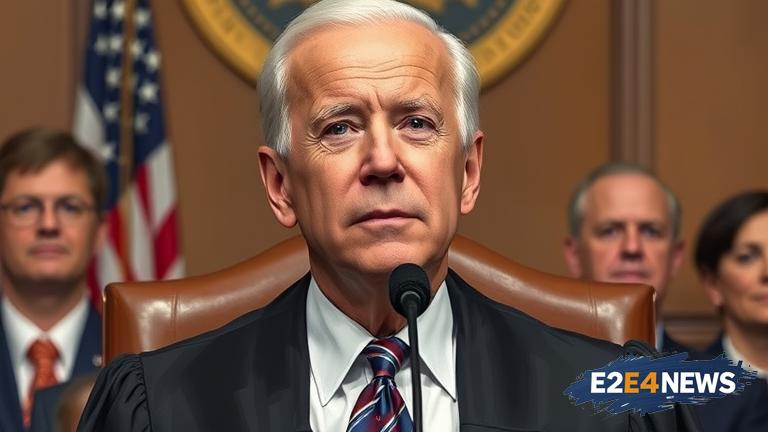A recent court ruling has halted the implementation of a Biden-era rule that sought to remove medical debt from credit reports. The rule, which was set to take effect on April 3, 2023, aimed to provide relief to millions of Americans struggling with medical debt. However, a federal judge has blocked the rule, citing concerns over the potential impact on the credit reporting industry. The judge’s decision has sparked controversy, with consumer advocates arguing that the rule would have provided much-needed relief to individuals and families burdened by medical debt. Medical debt is a significant problem in the United States, with millions of Americans struggling to pay off debt incurred due to medical expenses. According to a recent report, medical debt affects over 100 million Americans, with many facing financial hardship as a result. The Biden-era rule was designed to address this issue by removing medical debt from credit reports, which would have helped to improve credit scores and reduce the financial burden on individuals. However, the credit reporting industry has pushed back against the rule, arguing that it would undermine the accuracy of credit reports. The industry claims that medical debt is a legitimate factor in determining creditworthiness and that removing it from credit reports would create an uneven playing field. Despite these concerns, many consumer advocates argue that the rule would have provided a necessary safeguard for individuals who are struggling to pay off medical debt. They point out that medical debt is often incurred due to unforeseen circumstances, such as a sudden illness or injury, and that individuals should not be penalized for circumstances beyond their control. The blocking of the rule has significant implications for individuals and families struggling with medical debt. Without the rule, medical debt will continue to appear on credit reports, making it more difficult for individuals to obtain credit or secure loans. This can have a ripple effect, exacerbating financial hardship and making it more challenging for individuals to recover from medical debt. Furthermore, the ruling may also have broader implications for the credit reporting industry, potentially leading to further litigation and regulatory scrutiny. As the debate over medical debt and credit reporting continues, it is essential to consider the human impact of these policies. Millions of Americans are struggling to make ends meet, and the removal of medical debt from credit reports could have provided a vital lifeline. The blocking of the rule is a setback for these individuals, and it remains to be seen how the situation will unfold in the coming months. In the meantime, consumer advocates will continue to push for reforms that address the root causes of medical debt and provide relief to those struggling to pay off debt. The issue of medical debt is complex and multifaceted, requiring a comprehensive solution that takes into account the needs of individuals, families, and the broader economy. As policymakers and regulators navigate this complex landscape, it is crucial to prioritize the needs of those most affected by medical debt.
